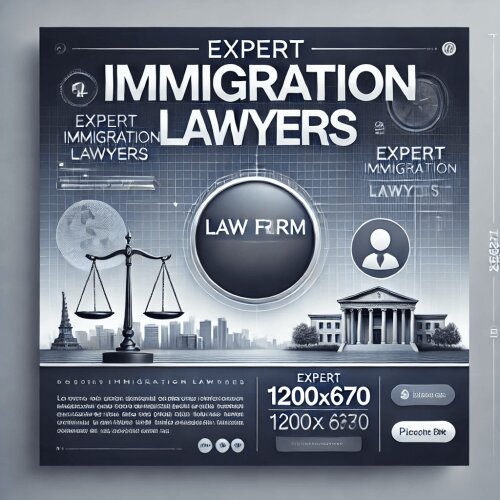Best Appeal Lawyers in Mississippi
Share your needs with us, get contacted by law firms.
Free. Takes 2 min.
Or refine your search by selecting a city:
List of the best lawyers in Mississippi, United States
About Appeal Law in Mississippi, United States
Appeal law in Mississippi refers to the system by which parties who are dissatisfied with a court's decision can request a higher court to review and potentially overturn the verdict. Appellate courts in Mississippi do not retry cases or hear new evidence. Instead, they examine whether legal errors were made during the original proceedings that substantially affected the outcome. These appeals may arise from both criminal and civil cases. The main appellate courts in Mississippi are the Mississippi Court of Appeals and the Mississippi Supreme Court.
Why You May Need a Lawyer
You may need a lawyer for an appeal in Mississippi if you believe a trial court decision was incorrect, unfair, or unjust. Some common situations where legal help is necessary include:
- Conviction in a criminal case where you believe there were trial errors or your rights were violated
- Unfavorable rulings in civil lawsuits, such as disputes over contracts or property rights
- Family law decisions, including child custody or divorce, where you seek reconsideration by a higher court
- Administrative agency decisions that you wish to challenge in a higher forum
- Procedural mistakes or misapplications of the law by the lower court
An appellate attorney is trained to spot errors in the record, draft legal briefs, and make persuasive arguments to appellate judges, increasing your chances for a favorable outcome.
Local Laws Overview
Appeal procedures in Mississippi are guided primarily by the Mississippi Rules of Appellate Procedure. Some important aspects include:
- Appeals must usually be filed within 30 days of the final judgment in a case
- The notice of appeal must be filed with the clerk of the court where the case was heard
- Only certain orders, known as final judgments, can be appealed without special permission for interlocutory appeals
- Parties must base appeals on the record from the lower court - no new evidence is allowed
- The appellate process involves written briefs and may include oral arguments
- The Mississippi Supreme Court is the highest appellate authority in the state, but many cases are first heard by the Mississippi Court of Appeals
Knowing these local laws helps ensure that you adhere to strict deadlines and procedural requirements, which is crucial for a successful appeal.
Frequently Asked Questions
What is the difference between an appeal and a new trial?
An appeal reviews the lower court's record to determine if legal errors occurred, while a new trial involves rehearing the case with witnesses and evidence.
How long do I have to file an appeal in Mississippi?
Most appeals must be filed within 30 days of the entry of the final judgment or order being appealed.
Can I present new evidence during my appeal?
No, appellate courts review only the evidence and record from the trial court. No new evidence can be introduced on appeal.
Who decides my appeal?
Your appeal will be heard by a panel of judges at either the Mississippi Court of Appeals or the Mississippi Supreme Court, depending on the case specifics and court assignment.
What happens if I win my appeal?
If you win, the appellate court may reverse the lower court's decision, order a new trial, or remand the case back to the original court for further proceedings.
What happens if I lose my appeal?
If you lose, the original decision stands. In certain cases, you may be able to request a further review by a higher court, such as a petition to the Mississippi Supreme Court or, rarely, the United States Supreme Court.
Do I need a lawyer for my appeal?
While you may appeal without a lawyer (pro se), appellate law is technical and procedural. Most people benefit greatly from the assistance of an experienced appellate attorney.
How much does an appeal cost in Mississippi?
Costs can vary based on the complexity of the case, attorney fees, transcript preparation, and filing fees. Many attorneys offer consultations to discuss potential expenses.
Can any court decision be appealed?
Only final judgments or orders can generally be appealed as a right. Some interlocutory (non-final) orders require special permission from the court before an appeal can proceed.
How long does the appeal process take?
Appeals can take several months to over a year, depending on the case's complexity and the court's docket.
Additional Resources
For more information and assistance with appeals in Mississippi, you may find the following resources helpful:
- Mississippi Supreme Court Clerk's Office and website
- Mississippi Court of Appeals Clerk's Office and website
- Mississippi State Bar Association - Lawyer Referral Service
- Legal Services Mississippi - for assistance with low-income legal needs
- Local law libraries throughout Mississippi's counties
- Legal aid organizations specific to your county or municipality
Next Steps
If you believe you have grounds for an appeal or are facing an appeal from the other party, it is strongly recommended that you consult with an experienced Mississippi appellate attorney. Here are some recommended steps:
- Gather all relevant documents from your case, including the final judgment, court transcripts, and any orders or opinions
- Schedule a consultation with a qualified appellate lawyer to review your situation
- Be mindful of appeal deadlines, as missing them can forfeit your right to appeal
- Ask your attorney about the strength of your case, possible outcomes, and the costs involved
- Follow your attorney's guidance on preparing briefs and other materials necessary for the appellate process
Acting promptly and seeking reliable legal advice can make a significant difference in the outcome of your appeal in Mississippi.
Lawzana helps you find the best lawyers and law firms in Mississippi through a curated and pre-screened list of qualified legal professionals. Our platform offers rankings and detailed profiles of attorneys and law firms, allowing you to compare based on practice areas, including Appeal, experience, and client feedback.
Each profile includes a description of the firm's areas of practice, client reviews, team members and partners, year of establishment, spoken languages, office locations, contact information, social media presence, and any published articles or resources. Most firms on our platform speak English and are experienced in both local and international legal matters.
Get a quote from top-rated law firms in Mississippi, United States — quickly, securely, and without unnecessary hassle.
Disclaimer:
The information provided on this page is for general informational purposes only and does not constitute legal advice. While we strive to ensure the accuracy and relevance of the content, legal information may change over time, and interpretations of the law can vary. You should always consult with a qualified legal professional for advice specific to your situation.
We disclaim all liability for actions taken or not taken based on the content of this page. If you believe any information is incorrect or outdated, please contact us, and we will review and update it where appropriate.
Browse appeal law firms by city in Mississippi
Refine your search by selecting a city.















